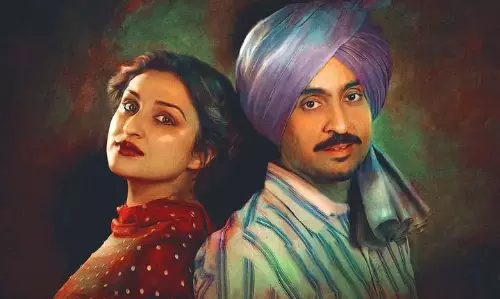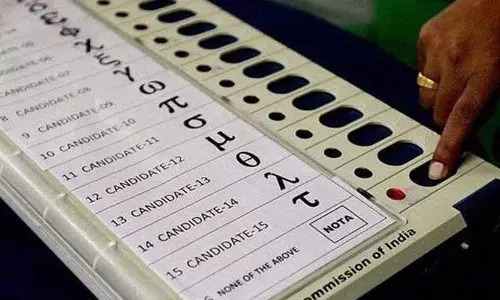
Will death penalty be a solution?
text_fieldsA three-member bench headed by Supreme Court Chief Justice Dipak Misra has directed the Registrar Generals of the High Courts across the country to collect and collate data regarding the number of people convicted among those accused in cases of sexual offences against children lodged under the Protection of Children from Sexual Offences Act (POCSO) Act, 2012 within four weeks.
The POCSO Act strengthens the provision for stringent punishment for sexual abuse and exploitation against children. It was following a PIL filed by lawyer Alok Srivastava citing the 2016 data of National Crime Records Bureau (NCRB) which said that 95 per cent of the child abuse cases were still pending across the country, that the apex court sought the data. The Chief Justice has asked to submit precise and the latest data collected by the teams formed under the supervision of High Court Chief Justices. The plea comes in the wake of the brutal rape of an 8-month old girl in Delhi who is currently in AIIMS struggling for her life.
According to the data released by NCRB, a terrifying rise was reported in 2016 in the sexual assault cases against those under eighteen years of age. It is 82.09 per cent higher in 2016 than in 2015. While Madhya Pradesh ranks first with 2467 cases, other states rank in the order of Uttar Pradesh (2115), Odisha (1258) and Tamil Nadu (1169). One must not forget the fact that the above number of cases have been reported when majority of the families of the victims of sexual abuse conceal such incidents without lodging any complaints fearing a loss of reputation. It is notable that in the country, more than half of the children who are being sexually exploited are boys. Another fact is 98 per cent of the abusers are familiar to children; and of them, majority are relatives. The situation is extremely scary considering the finding that one out of every two children in India becomes a victim of sexual abuse. Even in the literate and enlightened state of Kerala, sexual violence against children is surging up. While 215 cases of rape were reported in 2008, the figure went up up to 1101 even before 2017 ended. Sexual assault is punishable with rigorous imprisonment not less than three years to imprisonment for life; there is a fine as well. But what is the point when the punishments remain only in law and the courts fail to deliver a verdict by completing the trial in time in 95 per cent of the cases? State governments of Madhya Pradesh and Rajasthan have passed a Bill amending the Indian Penal Code (IPC) which ensures death penalty for those found guilty of raping girls of 12 years and below. Even while such things happen on one side, if this anti-human and extremely callous offence has surged up and reached a point triggering concern, one must realize that even the most severe punishment is not a solution to the problem.
Some of the reasons for the increase in crimes are the apathetic attitude of parents, hiding the crimes for fear of social insult, and failure of children to bring the incidents to the notice of authorities. It is also true that at times even when parents or relatives lodge a complaint, they do not lead to effective investigation or foolproof chargesheet. It is a common feature that the rich and influential escape from cases and only the poor get punished. Therefore, the phenomenon of the majority of convicted in India being poor is not accidental. However, the point to be highlighted above all is the existence of circumstances that give utmost encouragement to sexual crimes. Alcohol flows profusely in every nook and corner. Pornographic videos, pictures and movies are instantly transmitted via social media. The younger generation considers the kind of reforms a blessing which prohibits any stiff warning. And the legal system, known for its snail pace, continues to be neglectful of all this. When the milieu is getting in to such a quagmire, what can tightening of penalties alone, heedless of such factors, achieve?























